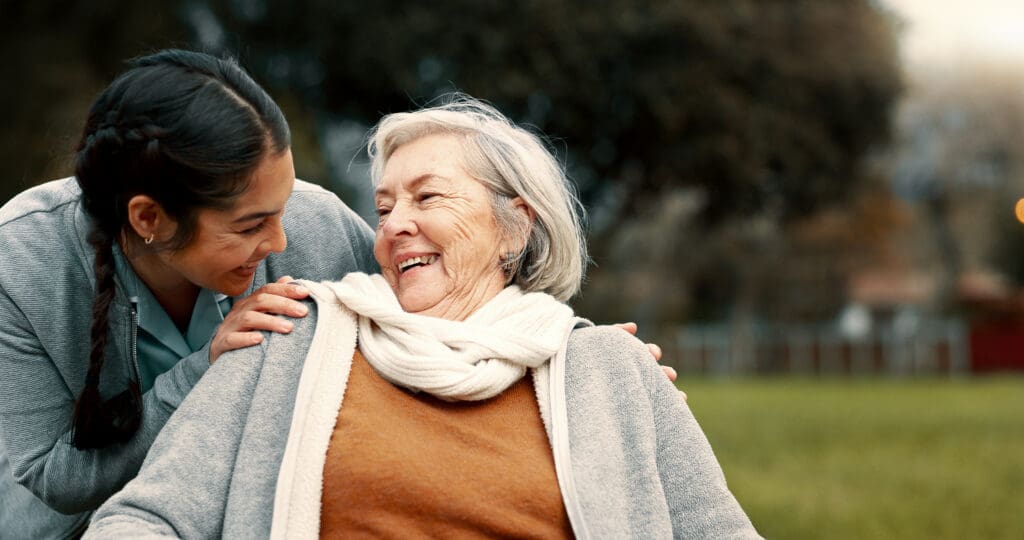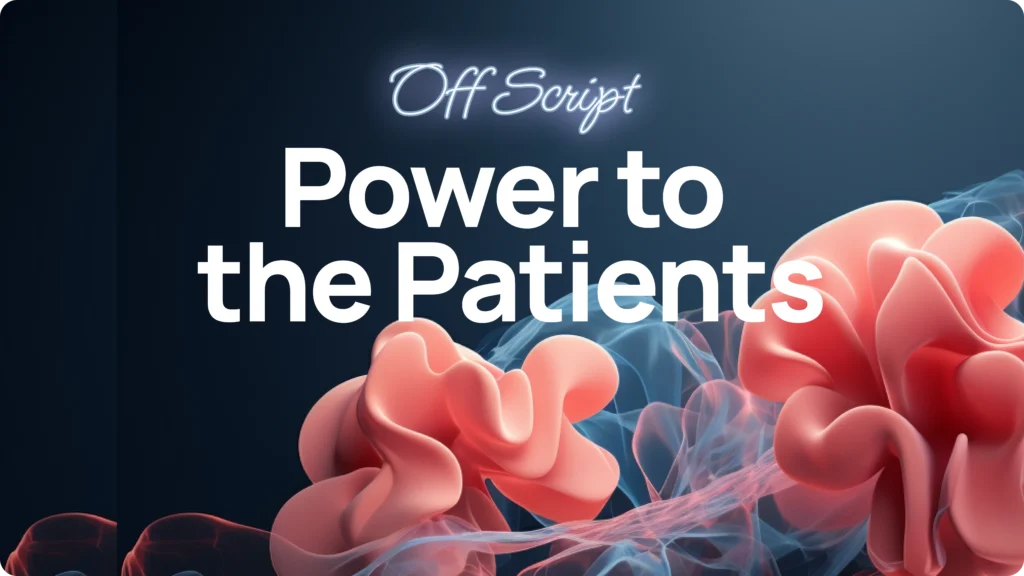| ONCOLife | April 10, 2024

In an innovative approach to cancer care, Dr. Manish Agrawal, CEO and Co-founder of Sunstone Therapies, is pioneering the integration of psychedelic-assisted therapy (PAT) to treat not just the physical manifestations of cancer but also the mental and emotional toll it takes on patients. Drawing on over two decades of experience as an oncologist, Dr. Agrawal states that the impact of cancer extends beyond the physical to profoundly affect patients’ mental health, an area that has historically been overlooked in cancer treatment.
The integration of Psychedelic Therapy in cancer care
Recent studies, including pivotal research from Johns Hopkins University and New York University in 2016, have illuminated the potential of psychedelics like psilocybin to alleviate depression and anxiety in cancer patients. These findings inspired Dr. Agrawal to transition from traditional oncology to focus on whole-person healing through Sunstone Therapies. This shift underscores a growing recognition of the need to treat the psychological repercussions of cancer, which can persist even after physical recovery.
A phase 2 clinical trial, published in JAMA Oncology and presented at the Annual Meeting of the American Society of Clinical Oncology, revealed significant benefits of psilocybin therapy for patients with cancer and major depressive disorder. The study demonstrated that a single dose of psilocybin, accompanied by therapeutic support, could induce remission of depression in cancer patients, with sustained benefits observed in a substantial proportion of participants. This research not only highlights the therapeutic potential of psychedelics but also the innovative group therapy model employed, fostering a sense of community and ongoing support among patients.
The exploration of psychedelic therapy in oncology represents a promising frontier in cancer care, offering new hope for addressing the often-neglected psychological aspects of the disease.

In our exclusive interview with Dr. Manish Agrawal, CEO of Sunstone Therapies, he delves into the transformative power of psychedelic-assisted therapy in cancer care. Addressing a crucial gap in traditional oncology, Dr. Agrawal discusses how this novel approach not only targets the physical tumor but also the pervasive mental and emotional turmoil cancer instills in patients and their families.
The Role of Psychedelic-Assisted Therapy in Transforming Cancer Care
Can you elaborate on how Sunstone Therapies’ model of psychedelic-assisted therapy represents a shift in the traditional approach to cancer care, particularly in addressing the mental health of patients?
Dr. Manish Agrawal: I was a practicing oncologist for over 20 years, largely focusing on treating the physical aspects of cancer, primarily the tumor. However, as time went on, I could see how a patient’s experience was so much more than just a tumor, that the uncertainty of the disease spread far beyond the physical and impacted the emotional and mental aspects of their lives as well as those of their families. One in five patients with cancer also suffers with depression, and even when patients are in remission, their mental health can continue to deteriorate.
Unfortunately, treatments that address the psychological effects of cancer have been limited. As I began to look more closely at the emerging research in this field, notably with psychedelic-assisted therapies, I realized there was a way to care for cancer patients that focused on whole person healing. That’s how Sunstone Therapies was born.
We’re delivering psychedelic-assisted therapy in the medical setting, with substances such as MDMA and psilocybin, initially through clinical trials, and moving towards clinical delivery if and when therapies are approved by the FDA.

What inspired the initiation of clinical trials focused on MDMA therapy for cancer patients and what are the main objectives of this research?
Dr. Manish Agrawal: One of our first studies was looking at treating major depressive dis-
order in cancer patients, with psilocybin-assisted therapy. That study was published in Jama Oncology in April 2023 and showed a clinically meaningful reduction in depression severity following a single dose of psilocybin given with individual and group therapeutic support before, during and after dosing.
In an 18-month follow-up study of 28 patients, we have seen sustained clinical response in 64% of patients and full remission of depressive symptoms, sustained from week 1, in 57% of patients.
We became interested in exploring whether psychedelic-assisted therapy could help patients as well as their loved ones who are also impacted by a cancer diagnosis. Between 13-58% of cancer patient caregivers are diagnosed with adjustment disorder, a psychological disorder associated with depression and reduced quality-of-life.
Treating a patient and loved one together can help to manage the mental and psychological challenges associated with cancer, making the diagnosis easier to navigate. We are currently running a phase
2 trial to look at the feasibility and effectiveness of MDMA-assisted therapy for adjustment disorder in dyads of patients with cancer and a concerned significant other into how we might be able to help the individuals and communities impacted by the mental distress of a cancer diagnosis.
Your program includes preparation and integration sessions surrounding administration of the psychedelic substance. How critical are these sessions to the therapy’s success, and what do they entail?
Dr. Manish Agrawal: There has been a growing interest in the use of psychedelics to treat mental health disorders and a lot of hype around how miraculous these therapies can be. While there is certainly huge
potential here, it’s important to realize that these are powerful medicines that need to be administered and used appropriately. If MDMA on its own cured PTSD and anxiety, nobody at a rave would be suffering with these mental health problems – and we know that’s not the case!
The role of the therapist in psychedelic-assisted therapy is absolutely critical. Therapists provide a constant, steady, reassuring presence throughout the psychedelic experience. Preparation sessions are used to prepare the patient for what might happen and discuss their intentions for the experience. Integration sessions afterwards provide space to make sense of what happened and discuss how to integrate that experience to continue the healing process. The drug allows us to open the door, but what happens when the door is opened depends on the intentions and attitudes of the participant, supported by their therapist.
We have treated more patients with psychedelic-assisted therapies in a medical setting (excluding ketamine) than anyone else in the last twelve months, and we know that these experiences can some-
times be difficult, for example bringing up past traumas. Patients need to have built a
trusting relationship with a trained therapist who can support them before, during and after the psychedelic session. The preparation and integration sessions are critical to the therapy’s success, it is not just a drug intervention.
What advice would you give to oncologists who are considering incorporating psychedelic-assisted therapies into their practice, in terms of training, patient selection, and managing expectations?
Dr. Manish Agrawal: Delivering psychedelic-assisted therapy has many parallels to running an oncology clinic. It’s complex and full of multiple moving parts, all of which need to come together seamlessly to deliver the best care to patients, through highly trained and experienced therapists. This isn’t something you can easily and safely add on as an extra service.
As with all medicines, there are risks involved – so it will be important to work with an established and dedicated psychedelic-assisted therapy clinic who understands these risks and how to mitigate them.
Similarly, these therapies won’t work for everyone, so we do need to better understand who will benefit. That’s the focus of many of the ongoing clinical trials today. This is a new paradigm for treatment and proper training, clinical care and education will be required to ensure safety and efficacy.
As a former practising oncologist, I’m very excited by the potential of these therapies and the opportunities they’ll give us to help patients. One trial participant told me that after his psilocybin therapy he felt transported and no longer afraid of his cancer. That, for me, feels like complete cancer care.


